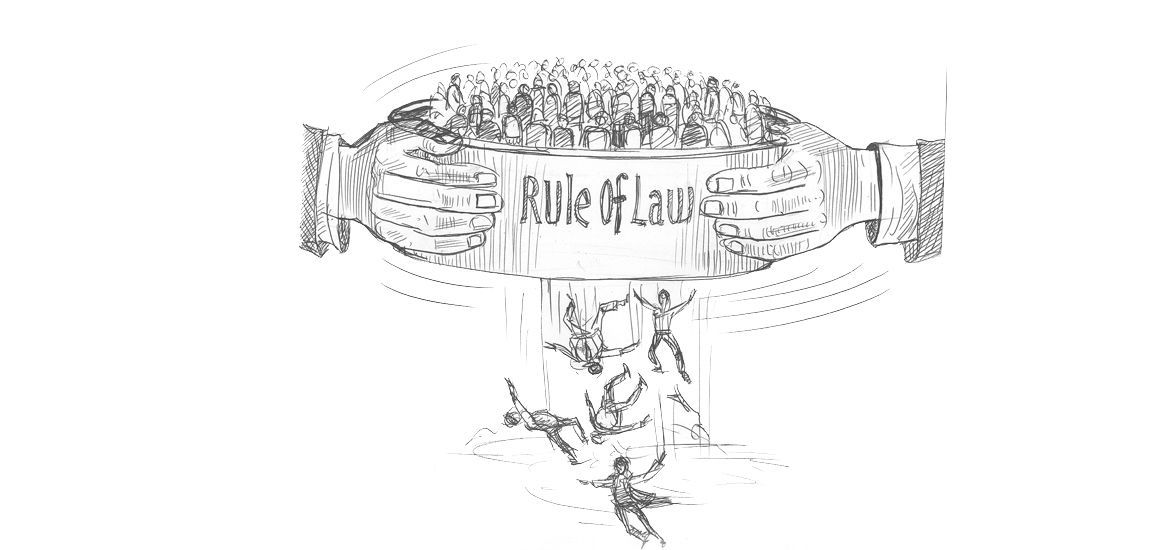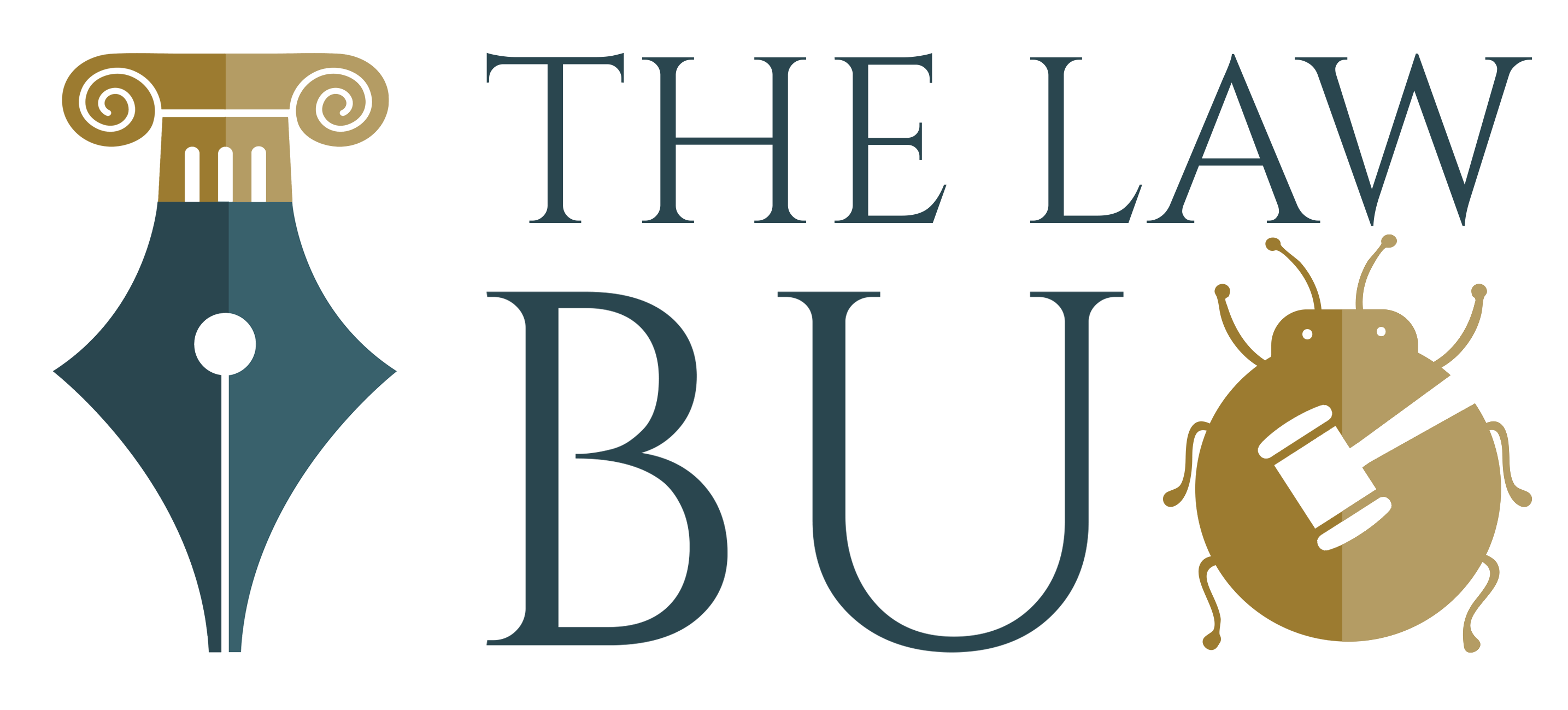The Doctrine of Rule of Law in India

The term "Rule of Law" is derived from a french phase 'La Principle de Legality' which refers to an administration which is based on principles of law. The doctrine of 'Rule of Law' is one of the most important component of a modern democratic society. For the successful functioning of a democratic society and to have constitutionalism, the enforcement of the 'rule of law' becomes a vital function of a democratic nation. One of the most important function of making laws in the society is to maintain peace and harmony between conflicting forces and develop an equal society for the progress of the people.
The Preamble of the Indian Constitution nowhere mentions of the term 'Rule of Law' but the Indian Judiciary from time to time have often used this doctrine in their judgements. The Preamble of the Constitution although clearly sets out the principle of 'Rule of Law' when it lays down the objectives of social, economic, and political justice, equality of status and opportunity, and fraternity and dignity of individuals in India. Rule of law has been declared by the Apex Court as one of the basic features of the Indian Constitution and so it cannot be amended even by a constitutional amendment and is seen as an integral part of good governance. As held in the case of Indira Nehru Gandhi v. Shri Raj Narain & Anr., the rule of law is the basis for democracy and judicial review. The rule of law postulates the pervasiveness of the spirit of law throughout the whole range of government in the sense of excluding arbitrary official action in any sphere.'Rule of law' is an expression to giver reality to something which is not readily expressible [1].
Principles of 'Rule of Law' proposed by A.V. Dicey and its application in India
The doctrine of Rule of Law is attributed to Dicey whose writing in 1885 on the British Constitution included the following three distinct though connected ideas in Rule of Law -
- Absence of Arbitrary Power& Supremacy of Law - It implies the absolute power and supremacy of the law. In lay man's language, no man is above the law. It defines the supremacy of the law above all. The rule of law requires both the citizens and the government to be subject to the standing laws. The concept of 'la principle de legalite' is opposed to Arbitrary powers. The spirit of Justice is one of the most important component of bringing about supremacy of law. Emphasis has to be laid on the principle of absence of arbitrary power or supremacy of law but the ulterior concentration has to be laid upon Justice and Not the law. Any law which fails to establish or bring about justice, has no concern. The government should be within such a framework where it recognizes rules and principles which restricts discretionary powers. As observed in the case of Som Raj v. State of Haryana, the absence of arbitrary power is the ultimate postulate of the Rule of Law upon which the whole constitutional structure is dependent [2]. Also, in the case of Bachan Singh v. State of Punjab, Justice Bhagwati has emphasized that the rule of law excludes arbitrariness and unreasonableness. He suggests that it is necessary to have a democratic legislature to make laws which will bring justice to the people but its power should not be restricted, and that there should be an independent judiciary to protect the citizens against such excesses of the executive and legislative power [3]. Rule of law is the restriction on the arbitrary exercise of power by the powerful forces by subordinating it to well defined- established laws. Law should govern the nation and not the arbitrary decisions by the individuals. Thus, Rule of Law embodies the doctrine of supremacy of law.
- Equality before Law - Every man, whatever his rank or condition, is subject to the ordinary law and jurisdiction of the ordinary courts and it remains the same that no man is above the law. The law which is administered should be the ordinary rule of law which is to made applicable to all the people equally irrespective of ones caste,creed or religion. This doctrine has been established in the Indian Constitution in the form of a Fundamental Right under Article 14 in the Part III whose excerpts can also be seen in Article 15. No person is meant to be deprived of his life or personal liberties except according to the procedure established by law [4]. The Indian Constitution lays down the concept of equality before the law and equal protection of laws. Any wrongful act committed by any person would be equally punished in a similar pattern. The law which is applicable in the ordinary courts of law applies to all the people with equal force and imperative. In the case of Secretary, State of Karnataka and Ors. v. Umadevi & Ors., the Court laid down that the rule of equality in public employment is a basic feature of our Constitution and since the rule of law is the core of our Constitution, a court would certainly be disallowing an order from passing which is in violation of Article 14 of the Indian Constitution [5]. The concept of Equality itself has been criticized lately. The Government possess the inherent authority to act purely on its own violation and without being subject to any checks or limitations. The matters where no case can be filed against the Bureaucrats and Diplomats in India and that no criminal proceedings whatsoever is instituted against the President, or the Governor of a state, in any court during his term of office shows that the concept of Equality needs some urgent changes.
- Pre-Dominance of Legal Spirit - The existence of the legal spirit in a modern democratic society is very essential for the working of the Rule of Law. Without an authority to protect and enforce the rights of the citizen, the inclusion of such equal rights in a lengthy document is of a little significance. The general principles of the Constitution are the result of juridical decisions determining the rights of an individual person in a particular case brought before the court. The individual rights and liberties are meant to be protected by the Independent Judiciary and that is how the legal spirit prevails in the society.
Rule of Law, the Judiciary and the Indian Constitution
Rule of Law does not mean rule according to statutory law, because such a law may itself be harsh and inequitable, discriminatory or unjust. Rule of Law defines some higher kind of law which is reasonable and just and non-discriminatory. The Indian Constitution by and large seeks to promote Rule of Law through many of its provisions. For example, Parliament and State Legislatures are democratically elected on the basis of adult franchise. The Constitution makes adequate provisions guaranteeing independence of the Judiciary. The Supreme Court has characterized judicial review as a basic feature of the Constitution [6]. The Supreme Court has invoked the Rule of Law several times in its pronouncements to emphasize upon certain Constitutional values and Principles. In P. Sambamurthy v. State of Andhra Pradesh, the Supreme Court has declared a provision authorizing the executive to interfere with tribunal justice as unconstitutional characterizing it as violation of the rule of law which is clearly a basic and essential feature of the Constitution [7]. Also in another case is of Yusuf Khan v. Manohar Joshi, in which the Supreme Court laid down the proposition that it is the duty of the state to preserve and protect the law and the constitution and that it cannot permit any violent act which may negate the rule of law [8]. Although, it is quiet evident that the concept of rule of law is gaining importance and attention and judicial efforts are made to make it more strong.
Conclusion
Thus, it can be concluded that democracy and rule of law are interdependent and one cannot flourish without the other. India is the world's largest democrat; however the prevalence of rule of law is under constant threat. Efforts are to be made to further nurture and preserve the rule of law in society in India without which our fundamental credentials as a democracy will be seriously undermine.
REFERENCES
[1] Indira Nehru Gandhi v. Shri Raj Narain & Anr.1975 AIR 2299.
[2] Som Raj v. State of Haryana, 1990 AIR 1176.
[3] Bachan Singh v. State of Punjab,AIR 1980 SC 898.
[4] Article 21, the Indian Constitution.
[5] State of Karnataka and Ors. v. Umadevi & Ors., 2006 (4) SCC 1.
[6] Minerva Mills Ltd. v. Union of India, AIR 1980 SC 1789.
[7] P. Sambamurthy v. State of Andhra Pradesh, AIR 1987 SC 663.
[8] Yusuf Khan v. Manohar Joshi, 1999 SCC (Cri) 577.

Comments ()